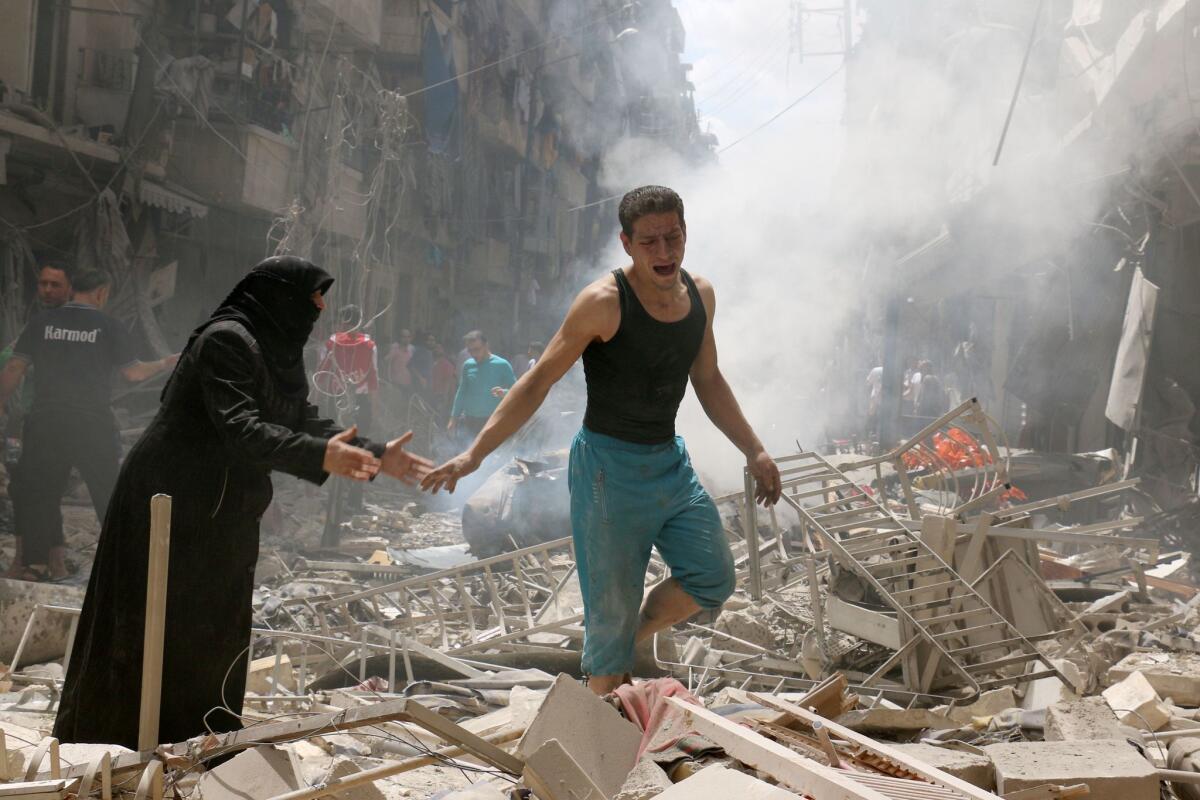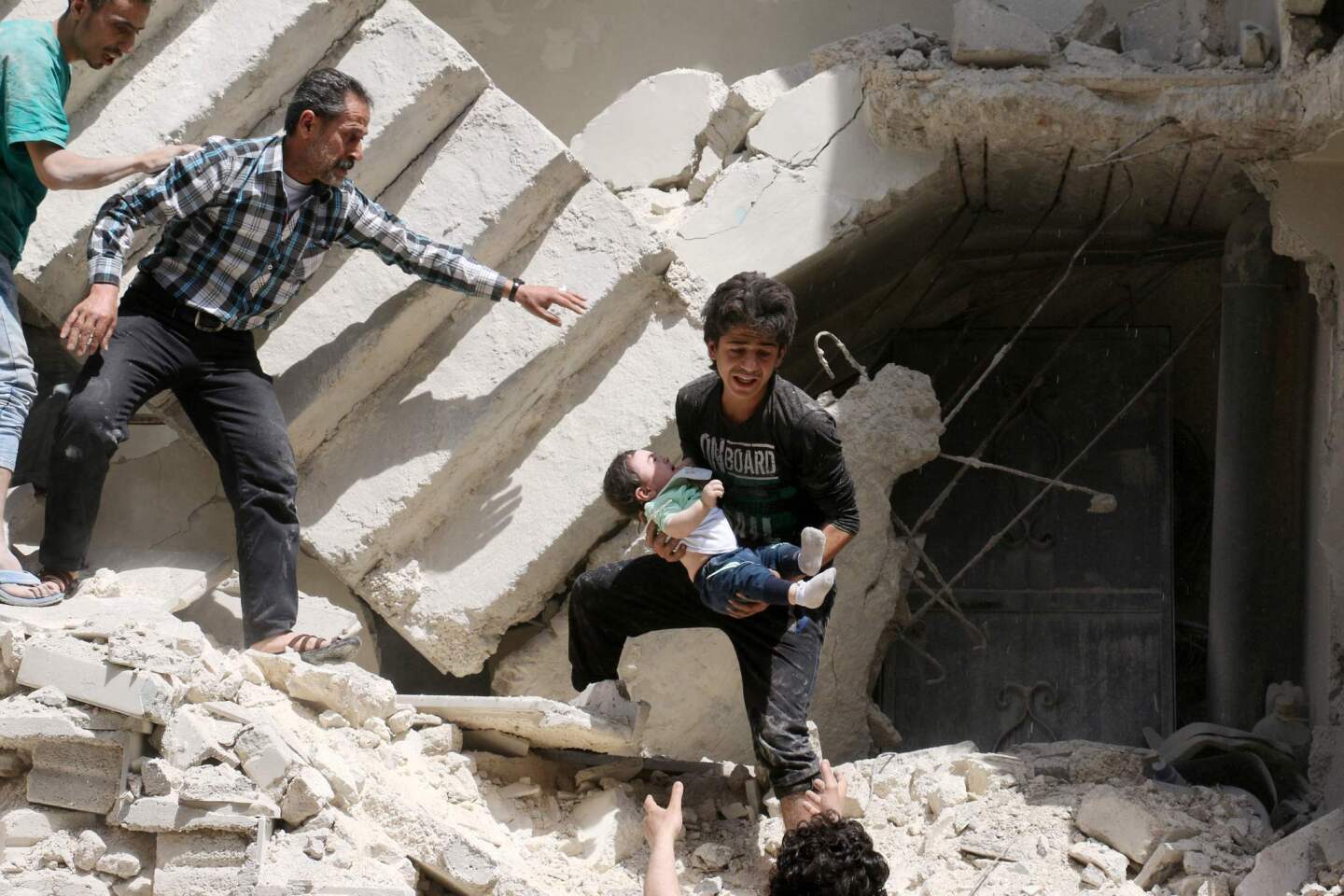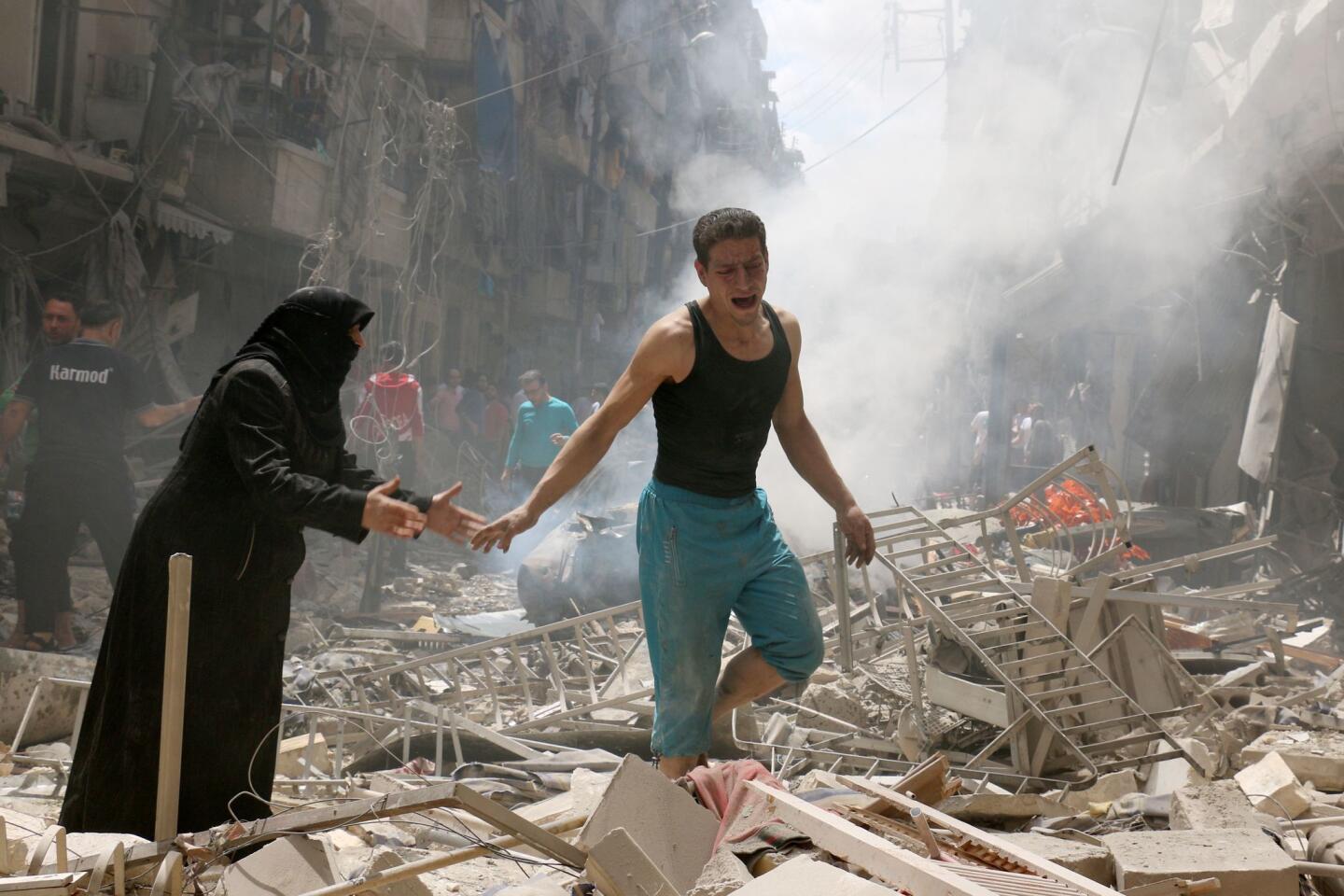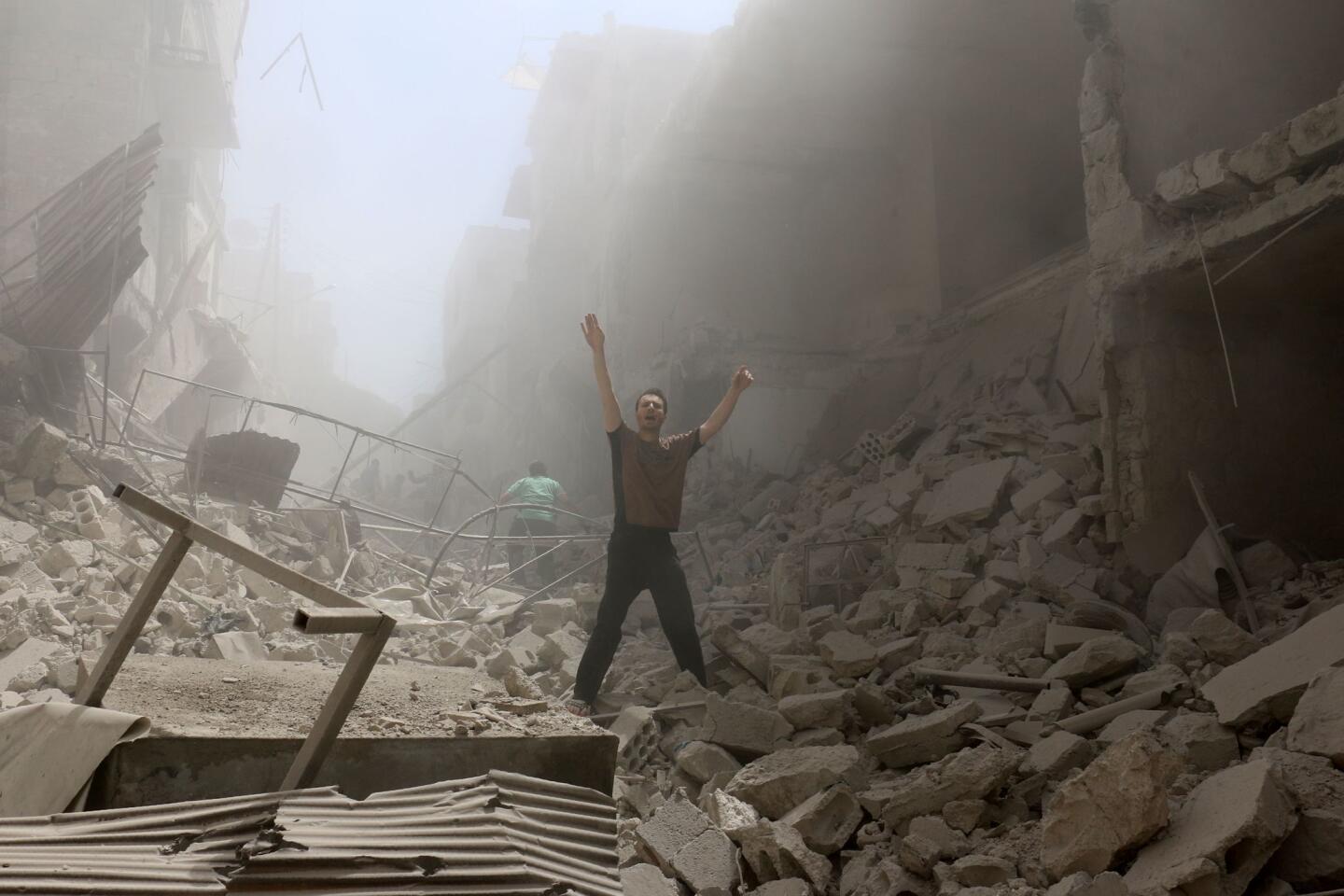Airstrike on Aleppo hospital kills last pediatrician in Syria’s largest city
- Share via
Reporting from Amman, Jordan — An airstrike killed at least 14 people at a hospital in Aleppo on Wednesday night, including the last pediatric physician in Syria’s largest city, according to the medical charitable organization Doctors Without Borders.
The al-Quds hospital, which Doctors Without Borders supports, was reduced to rubble in the attack.
Other groups, including the pro-opposition monitor Syrian Observatory for Human Rights, put the death toll at the hospital at 27.
On average, one Syrian has been killed every 25 minutes over the past two days, Staffan de Mistura, the U.N. envoy leading negotiations to end the conflict, estimated Thursday.

People walk amid the rubble after an airstrike on a rebel-held neighborhood in Aleppo, Syria.
If attacks around Aleppo continue at the pace seen in the last 48 hours, he said, the truce agreement brokered by the U.S. and Russia will collapse. The cessation of hostilities, as it is formally known, “is still alive but barely,” De Mistura said. He called on Washington and Moscow to redouble efforts to “salvage” the cessation of hostilities that in late February did signal a reduction in fighting and bloodshed.
The strike destroyed “a vital hospital in Aleppo and the main referral center for pediatric care in the area.” Muskilda Zancada, head of Doctors Without Borders’ programs in Syria, said in a statement Thursday. “Compounding this tragedy is that the dedication and commitment of the staff of al-Quds, working under unimaginable conditions, has been unwavering throughout this bloody conflict.”
The city, once the industrial heart of Syria, has been torn asunder by the fighting, leaving the southwest region of the city in the hands of the government while its eastern parts are controlled by an array of Western-backed rebel factions and Islamist groups.
The nationality of the warplane that launched the strike remained unclear. Both the Syrian government and its ally Russia have conducted airstrikes on rebel-held areas in recent days.
“For nearly a week there have been an average of 15 strikes a day in Aleppo,” Osama Teljo, a member of the opposition’s Aleppo city council, said in an interview via social media.
A military source quoted by Syrian state media insisted “there was no truth” to accusations that the Syrian air force had targeted the hospital, and said that rebel shelling of government-controlled neighborhoods of the city on Thursday had killed and wounded dozens.
Russia’s Ministry of Defense also denied responsibility for the strike, saying that its planes had not conducted any sorties over Aleppo in the last few days.
Secretary of State John F. Kerry, meanwhile, forcefully condemned the airstrikes on the hospital. Saying he was “outraged,” Kerry appeared to put the blame on the regime of Syrian President Bashar Assad.
“While we are still trying to gather the facts surrounding the circumstances of this attack, it appears to have been a deliberate strike on a known medical facility and follows the Assad regime’s appalling record of striking such facilities and first responders,” Kerry said in a statement. “Russia has an urgent responsibility to press the regime to fulfill its commitments” not to attack civilians and “to abide fully by the cessation of hostilities.”
Rami Abdul Rahman, head of the Syrian Observatory for Human Rights, accused the Syrian government of engaging in a concerted effort to destroy service facilities in the area.
“The government needs to do this so as to force people to leave and make it easier to overrun Aleppo,” he said in a phone interview on Thursday.
“This is the policy they have always followed.”
He added that Russian planes had only struck targets outside of the city.
Doctors Without Borders officials contacted on Thursday could not confirm if the coordinates of the hospital had been provided to pro-government forces as is often customary with such faciliities so they can be excluded from military target lists.
“Since this is a hospital we support and do not actually run, it is the choice of each media structure we support whether they share their coordinates or not,” said the group’s press officer Mirella Hodeib.
Special correspondent Bulos reported from Amman and Times staffer Wilkinson reported from Washington, D.C.
More to Read
Sign up for Essential California
The most important California stories and recommendations in your inbox every morning.
You may occasionally receive promotional content from the Los Angeles Times.














